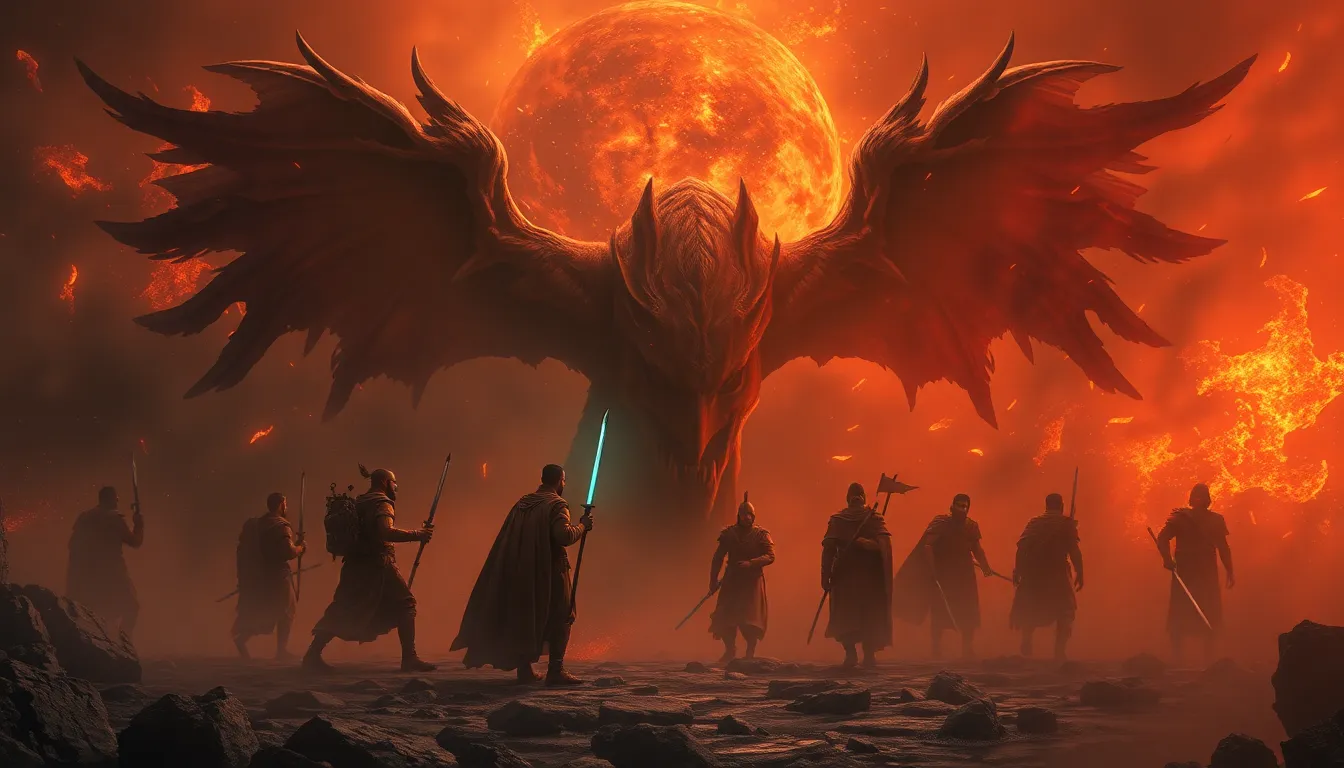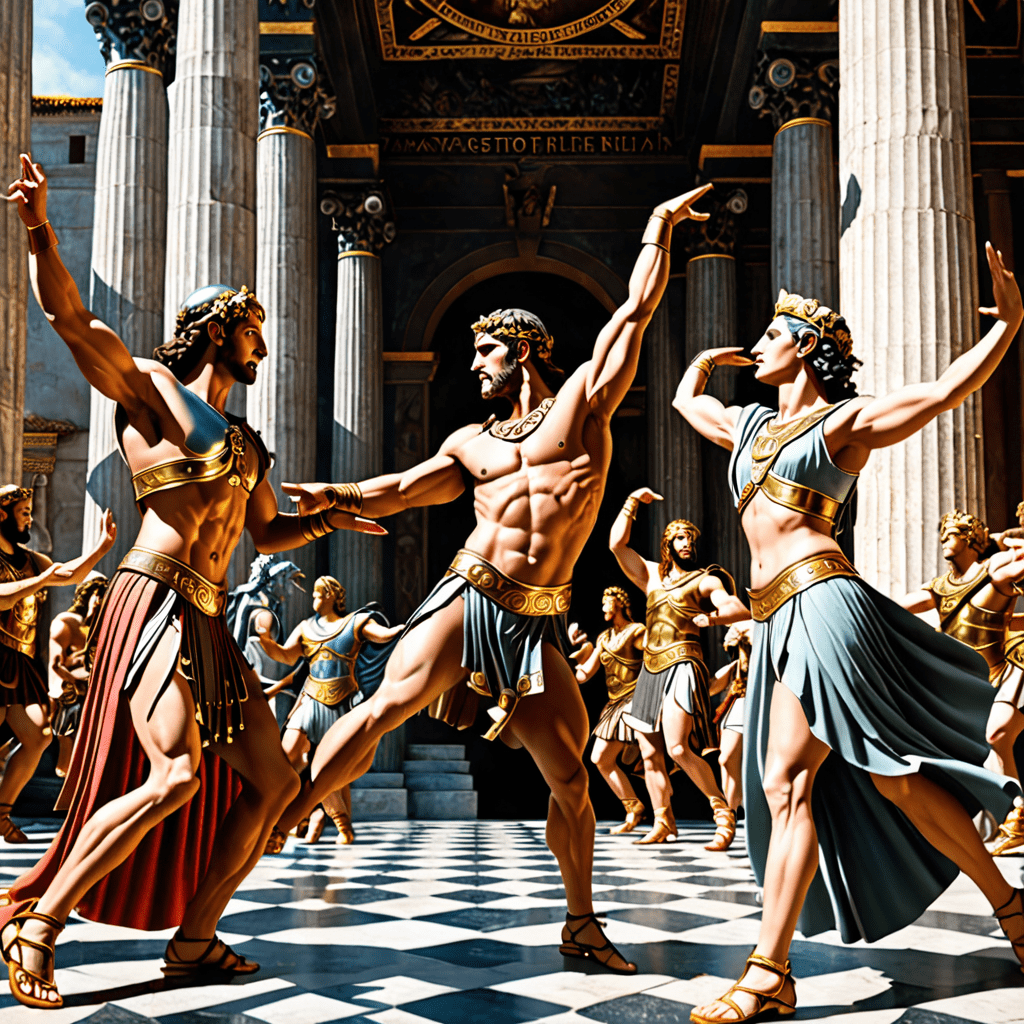The Myth of the Great Rebellion: Morality in Resistance
1. Introduction
The Great Rebellion, often romanticized in historical narratives, represents a pivotal moment in the evolution of political resistance and moral philosophy. It encapsulates the struggle of oppressed individuals against tyrannical governance, giving rise to a complex interplay between morality and rebellion. This article aims to explore this intersection and unravel the myth surrounding the Great Rebellion, highlighting its significance in both historical and contemporary contexts.
2. Defining the Great Rebellion
A Brief History: Key Events and Figures
The Great Rebellion, typically associated with various uprisings across different regions, notably includes events like the American Revolution and the French Revolution. Key figures such as George Washington, Thomas Paine, and Maximilien Robespierre played crucial roles in shaping the narratives of these movements. These leaders became symbols of resistance, inspiring countless others to question authority and seek justice.
The Narrative: How the Rebellion Became a Myth
Over time, the Great Rebellion has been enshrined in mythological terms, often overshadowing the complexities of the events. The heroic narratives surrounding these uprisings often simplify the motives and actions of those involved, creating an idealized version of resistance that sometimes overlooks the ethical ambiguities present in real-life situations.
3. The Concept of Morality in Revolt
What is Morality? Philosophical Perspectives
Morality can be defined as a system of principles and values concerning the distinction between right and wrong behavior. Philosophers have long debated the foundations of morality, with various perspectives including:
- Utilitarianism: The greatest good for the greatest number.
- Deontological ethics: Duty-based ethics focused on adherence to rules.
- Virtue ethics: Emphasizing moral character and virtues.
The Role of Ethics in Political Resistance
In the context of political resistance, ethics play a crucial role in determining the legitimacy and acceptability of rebellion. Movements that arise from a place of moral outrage often gain public support, while those perceived as unjust or violent may face condemnation.
4. Historical Perspectives on Resistance
Notable Rebellions Throughout History: Lessons Learned
History is replete with notable rebellions that provide insights into the dynamics of resistance:
- The American Revolution (1775-1783): A quest for independence driven by Enlightenment ideals.
- The French Revolution (1789-1799): A radical change fueled by social inequality and political oppression.
- The Haitian Revolution (1791-1804): A successful slave revolt that challenged colonial powers.
Case Studies: The American Revolution, French Revolution, and Others
These revolutions not only transformed their respective societies but also set precedents for future resistance movements. Each case reflects unique moral dilemmas and the varied consequences of rebellion.
5. The Moral Justification for Rebellion
Theories of Just War: Criteria for Ethical Resistance
Theories of just war provide a framework for evaluating the morality of armed conflict. Key criteria include:
- Just cause: The reason for the rebellion must be morally sound.
- Legitimate authority: The movement should be led by a rightful entity.
- Proportionality: The response should be proportionate to the injustice faced.
The Role of Oppression and Injustice as Catalysts for Action
Oppression and systemic injustice serve as significant motivators for rebellion. When a populace feels marginalized or threatened, the urge to resist often intensifies, raising questions about the morality of their actions.
6. The Consequences of Resistance
Immediate Effects on Society and Governance
Resistance can lead to immediate changes in governance and social structures. It may dismantle oppressive regimes or, conversely, lead to chaos and instability. The outcomes often depend on the strategic decisions made by leaders and participants during the rebellion.
Long-term Implications for Morality and Ethics
In the long term, successful resistance movements can reshape societal values and ethical frameworks. They can inspire new norms surrounding human rights and justice, influencing future generations’ understanding of moral resistance.
7. The Myth vs. Reality of the Great Rebellion
Analysis of Myths Shaping Public Perception
The Great Rebellion is often surrounded by myths that embellish its narrative. These myths serve to create a national identity and to promote unity, but they can also obscure the complexities and ethical challenges faced by those involved.
The Impact of Romanticism and Nationalism on Historical Narratives
Romanticism and nationalism have played pivotal roles in shaping the public’s perception of the Great Rebellion. They often glorify the struggle while oversimplifying the moral dilemmas inherent in such movements.
8. Resistance Movements in Contemporary Context
Modern Examples of Resistance: Ethics in Action
Today, resistance movements continue to emerge globally, addressing a variety of social and political issues. Examples include:
- The Black Lives Matter movement.
- The Arab Spring uprisings.
- Climate activism and movements against environmental degradation.
The Role of Social Media and Globalization in Shaping Morality in Resistance
Social media has transformed the landscape of resistance, allowing for rapid dissemination of information and mobilization of support. It has raised ethical questions about the nature of activism and the responsibilities of individuals in a globalized world.
9. Critiques of the Myth of the Great Rebellion
Dissenting Views: Revisiting Historical Narratives
Critics argue that the mythologizing of the Great Rebellion can lead to a skewed understanding of history. They advocate for a more nuanced approach that considers the diverse experiences and perspectives of all participants.
Ethical Dilemmas: When Resistance Crosses Moral Boundaries
Resistance is not without its ethical dilemmas. Actions taken in the name of rebellion can sometimes violate moral principles, leading to questions about the justifications for such actions and their consequences on society.
10. Conclusion
In reflecting on the importance of morality in resistance, it becomes clear that the lessons of the Great Rebellion are still relevant today. Understanding the ethical dimensions of rebellion can inform contemporary movements and help navigate the complexities of resistance in an ever-changing world. The future of rebellion lies not only in the pursuit of justice but also in the ethical considerations that underpin these struggles, reminding us that history, while often romanticized, is fundamentally about the human experience and our quest for dignity and equality.



